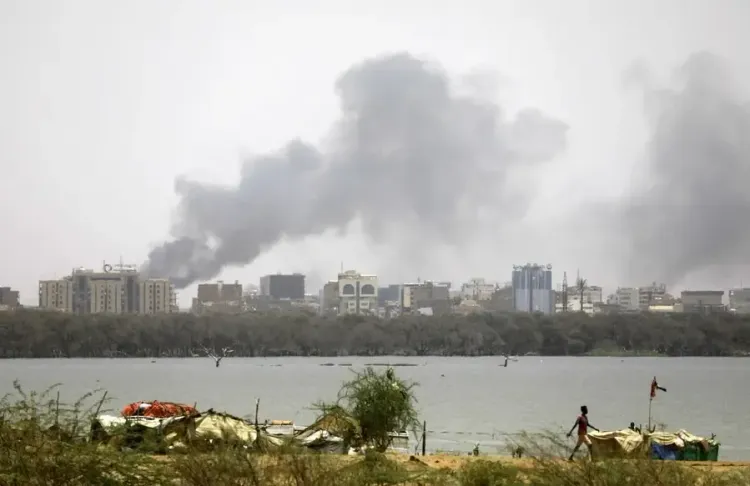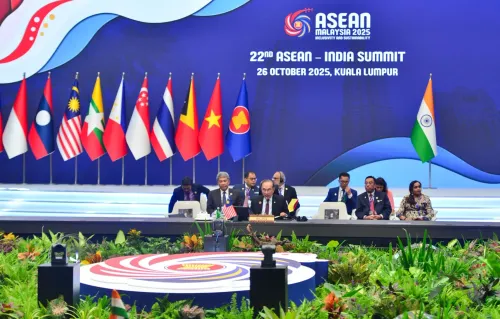UN Officials Express Alarm Over Intensifying War in Sudan After Armed Groups Seize Zamzam Camp

Synopsis
Key Takeaways
- UN expresses deep concern over escalating war in Sudan.
- Armed groups have taken over Zamzam displacement camp.
- Civilians and humanitarian workers face severe threats.
- Over 400,000 residents have fled the camp.
- Immediate international assistance is crucial for humanitarian efforts.
United Nations, April 17 (NationPress) Aid officials are highly alarmed about the intensifying war in Sudan following distressing reports of atrocities during the takeover of the Zamzam displacement camp in North Darfur by armed groups, according to UN humanitarian sources.
The UN Office for the Coordination of Humanitarian Affairs (OCHA) expressed grave concern regarding the humanitarian crisis in and around El Fasher, the capital of North Darfur State, situated just 15 km north of the extensive and famine-affected camp.
"Local partners have provided profoundly troubling accounts of atrocities following the reported takeover of the Zamzam displacement camp by armed groups," stated OCHA.
"Civilians, including humanitarian personnel, are reportedly being obstructed from leaving, with survivors recounting instances of targeted killings, sexual violence, and the incineration of homes."
When inquired about the paramilitary Rapid Support Forces (RSF) establishing a parallel governance system to the one in Khartoum, Stephanie Tremblay, associate spokeswoman for the UN secretary-general, remarked that this would not lead to a resolution of the conflict, which can only be achieved through substantial, inclusive dialogue, as reported by Xinhua.
"As an international community, we must discover methods to assist the Sudanese people in ending this unimaginable catastrophe and establishing acceptable transitional frameworks," Tremblay emphasized.
Earlier in the week, it was reported that around 400,000 of the estimated 500,000 individuals residing in the Zamzam camp fled amidst the assault of armed groups believed to be associated with the RFS militia.
OCHA mentioned that local sources indicated individuals are relocating to areas such as Jebel Marra and Tawila, positioned west and southwest, respectively, of El Fasher, amid a highly unstable security atmosphere and ongoing attacks.
"Access limitations, a critical fuel scarcity, and a precarious security situation are severely hampering humanitarian operations in El Fasher," stated OCHA. "Health services and water treatment have been notably impacted."
Tremblay reported that in Khartoum State, drones attacked power infrastructure on Monday, resulting in extensive outages of electricity and clean water in areas including Um Badda, Karrari, and Omdurman.
Partners caution that the majority of water facilities are no longer operational, and a crucial water station serving the cities of Atbara and Ad Damar now requires emergency diesel support to remain functional.
On Tuesday, the Sudan war marked the second anniversary of the RSF attacks in Khartoum, which ignited a conflict that has claimed nearly 30,000 lives, displaced about 13 million individuals from their homes, with 4 million of those fleeing to neighboring countries, and left roughly half of the 50 million population hungry.
"Once again, OCHA calls on all parties engaged in the conflict to protect civilians and facilitate humanitarian access," the office stated. "We also urge increased international assistance to ensure essential services and humanitarian aid to the most vulnerable populations in Sudan continue."










